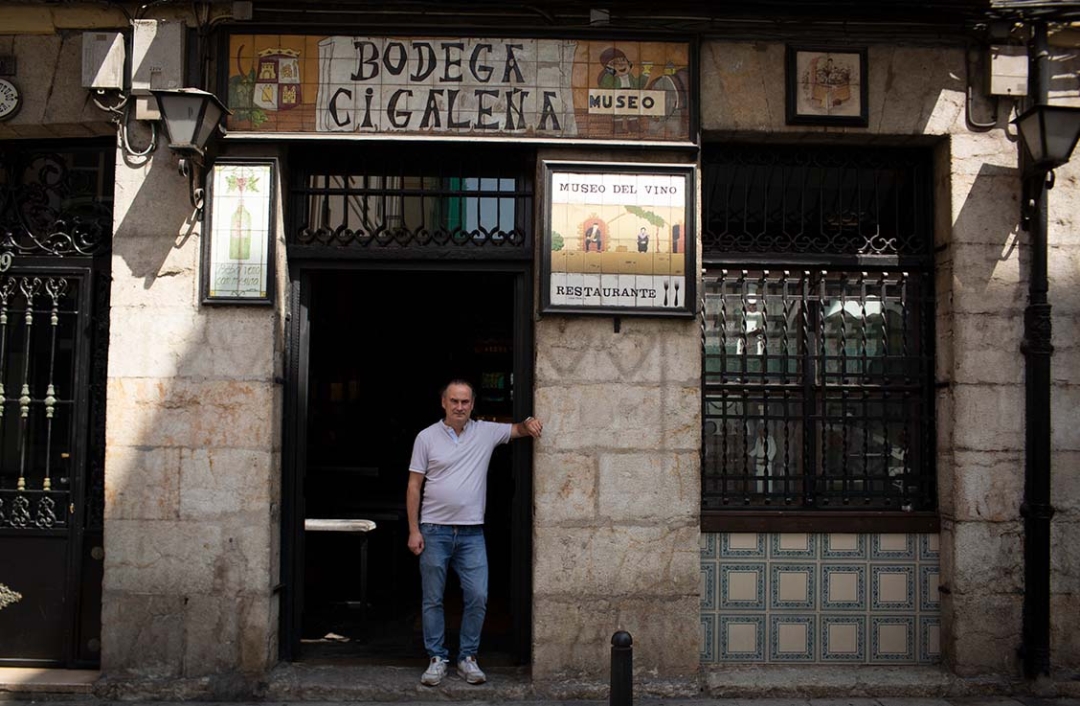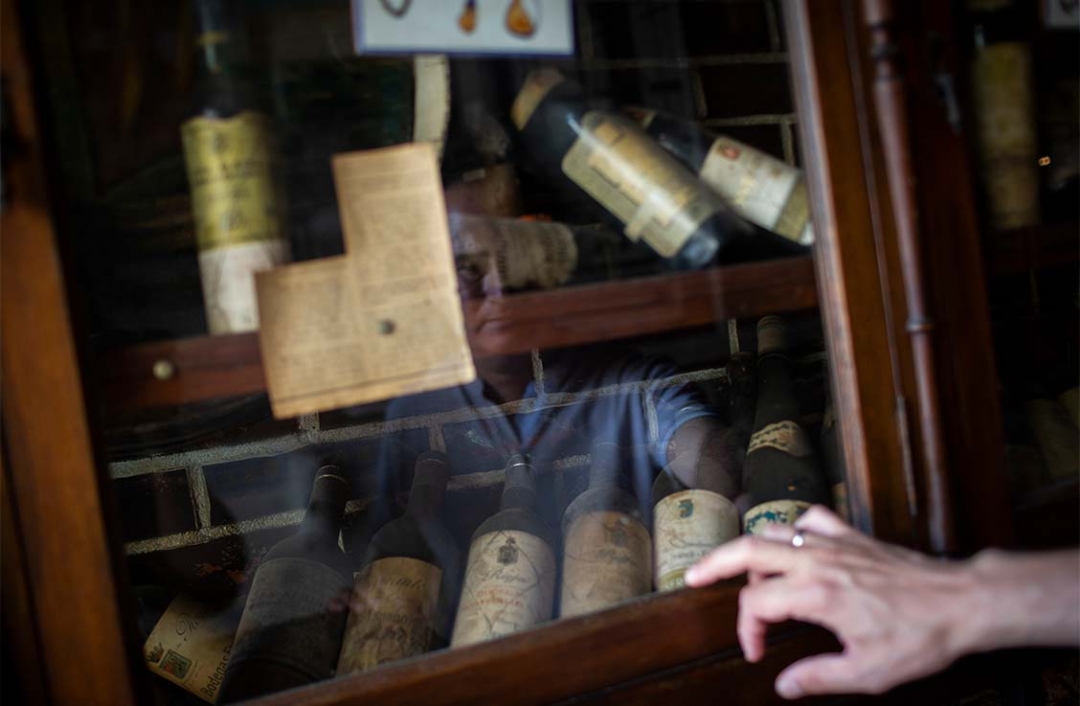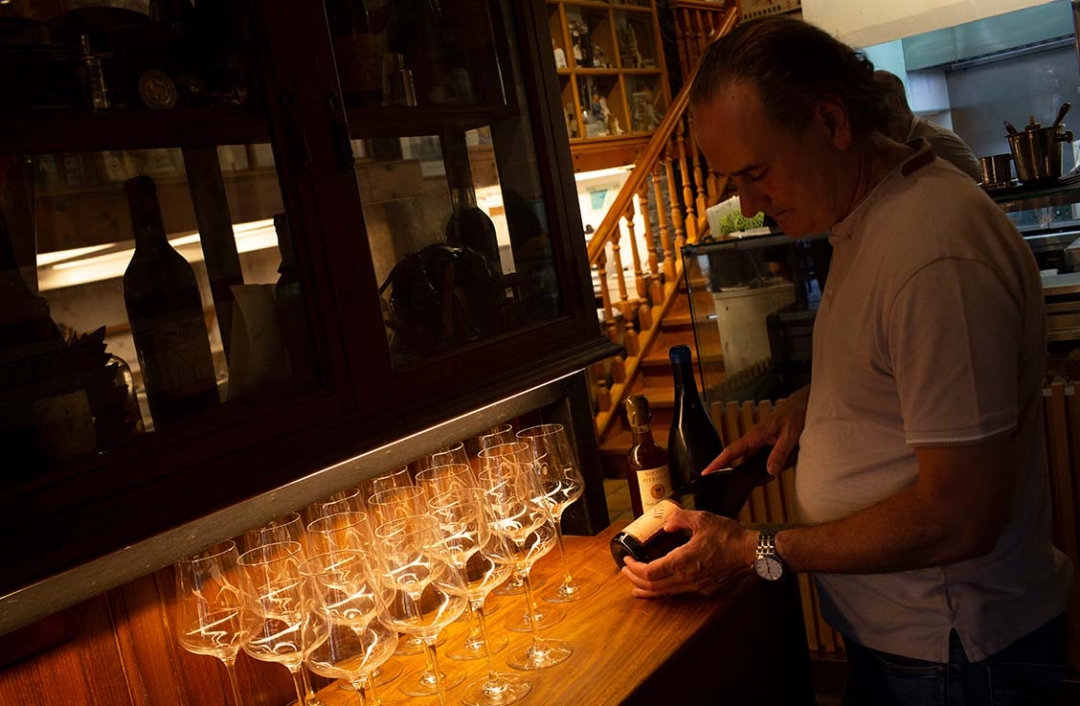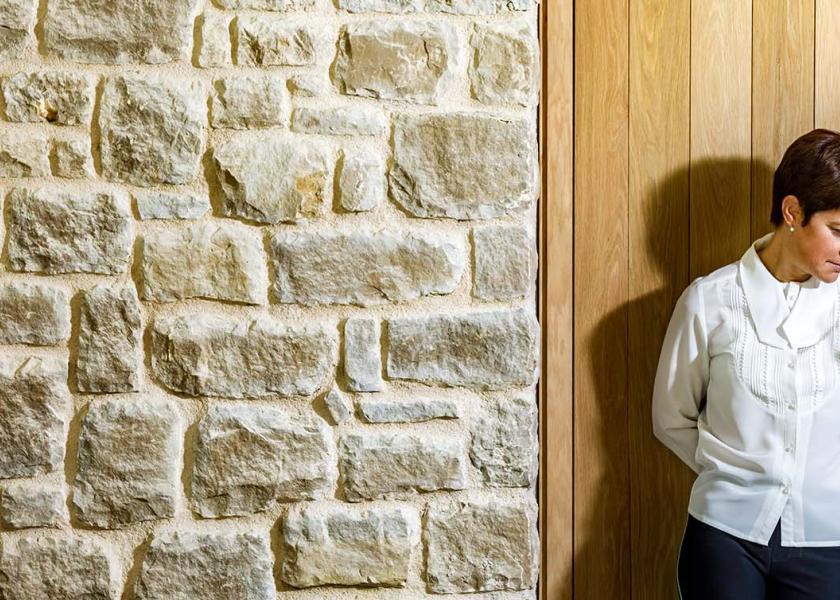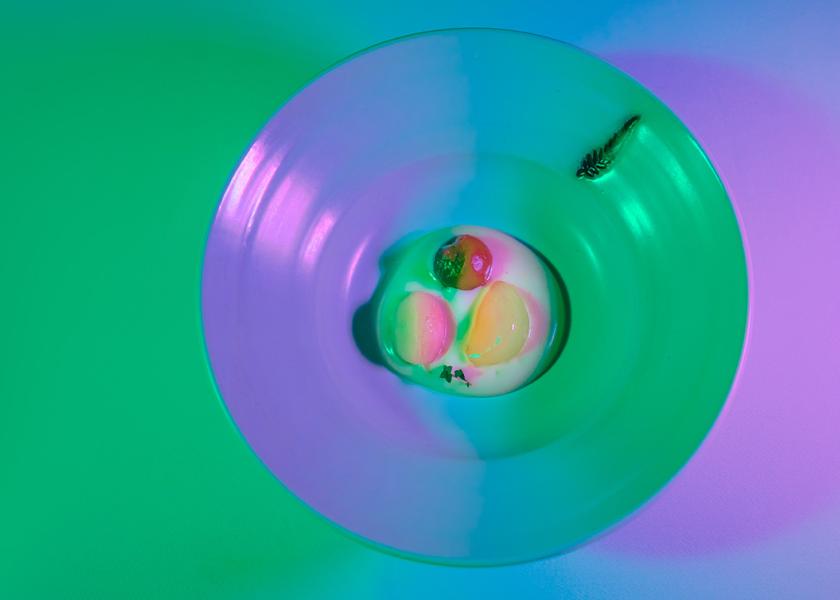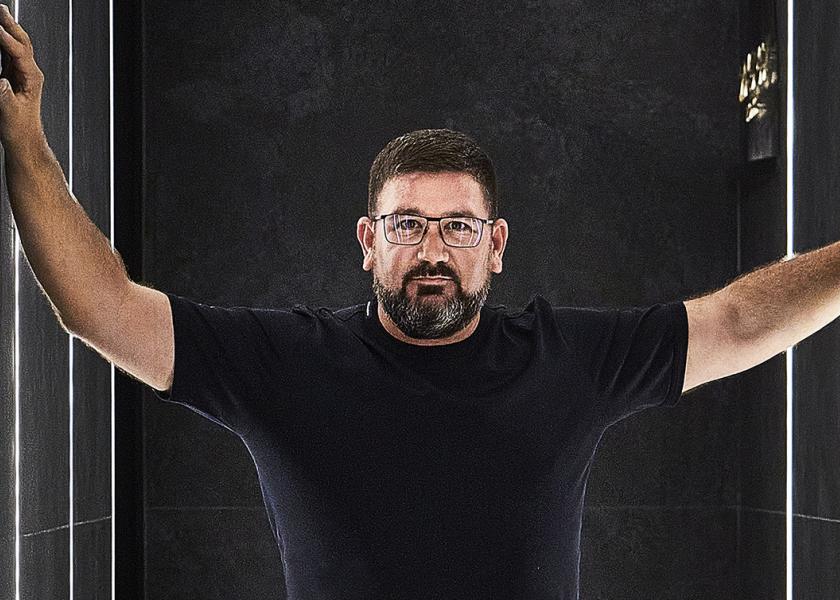Andrés Conde Laya
The democratisation of wine
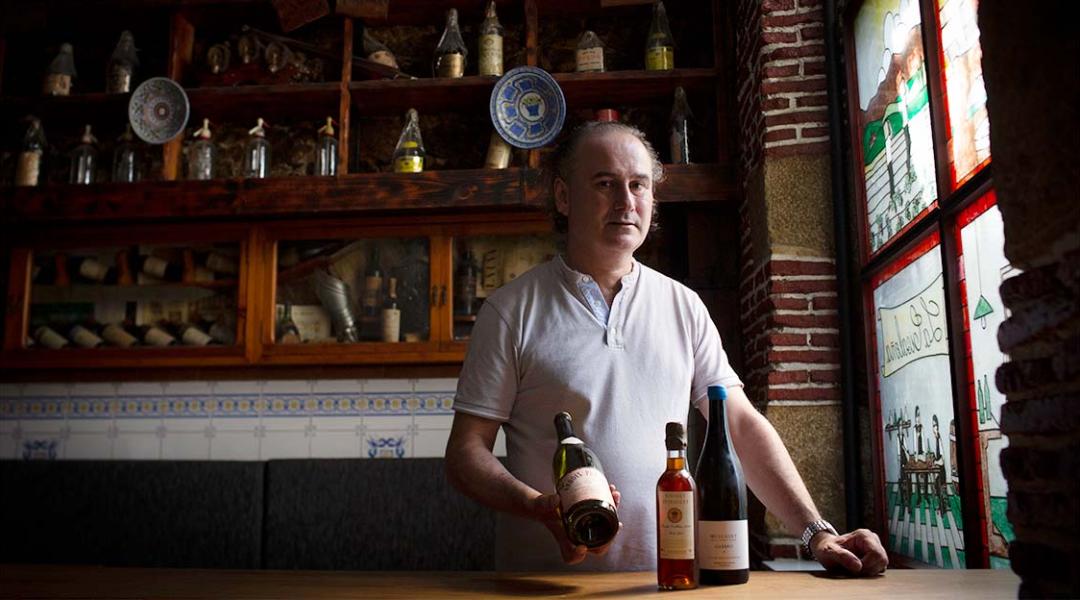
Intuition, experience, and freedom support the work of Andrés Conde in his endless pursuit around the world of the most surprising wines according to production, philosophy, flavour, and price. After spending half a lifetime immersed in wine discoveries and tastings, now his formula has taken him to the peak of his trade after being considered the best sommelier in Spain.
Andrés Conde (Santander, 1970) assures us that nothing is possible without hard work. He tells us when we ask him about which skills have led him to win the Spanish National Gastronomy Award for Best Sommelier in 2021. “Hard work and sacrifice”, he adds, highlighting passion, “without it, it’s hard to do anything”. This award recognises his divergent proposal: finding the best and most special wines in the world, which are still affordable for all types of customers.
For this, Conde travels a lot, visits local producers, tries unknown labels, and establishes almost fraternal relationships with wine growers who have little to do with the dynamics of large wineries and wine multinationals. Then he showcases all this knowledge at La Cigaleña, which includes a menu with more than one thousand references. A winery-tavern founded by his grandfather in the centre of Santander, where he works since 1994, when he joined at the service of his father. In 2006, he took the reins alongside his brother, putting his heart and soul into the essence of the place, which today has turned into a temple for everyone who wants to taste surprising wines without breaking the bank.
What are you most passionate about as a sommelier: the adventure of discovering good wines, or the educational work of showcasing them?
Discovering a wine is beautiful but explaining it to customers while trying to get them hooked on something different is more interesting, because those who always drink the same thing aren’t customers we’re interested in or passionate about. It’s boring.
So, you encourage them to...
Never drink the same wine twice. Among other things, because every time you try a different wine, your taste intuitively gets an idea. There are things that you approve of or reject depending on if you know them or not.
“Discovering a wine is beautiful but explaining it to customers while trying to get them hooked is more interesting”
So, we mustn’t pigeonhole ourselves.
No. When someone says, “this is bad”, well, no, perhaps they haven’t tried it, or they don’t have the knowledge. It’s good to travel, observe, and try, and it’s not as easy as everyone says. The world of wine isn’t red or white, yes or no. The simplistic phrase “good wine is the one that I like” isn’t fair. And, of course, mood and predisposition are everything. If you’re not in a good mood, it doesn’t matter if you’re given the best, because you won’t appreciate it.
It looked like your talent was going to focus on finance, but you ended up working with wine. What happened?
I finished my studies, and I wasn’t attracted to finance, but I was to wine. I was more excited about reading a wine book by Hugh Johnson than reading one on economics by Keynes. I was much more interested in there being wines in so many areas and it being such a surprising world, almost like a never-ending puzzle. Just as an anecdote: how can a single village like Vosne-Romanée have sixty designations of origin and one hundred producers? And how can the wine made by four producers on the same land be completely different?
You’re an advocate for natural wines. Are they destined to rule?
I think so, there are a lot of natural labels that used to be for wine connoisseurs before, which have now turned into cult labels for super-brand hunters. It’s a movement that will raise awareness among the rest of the producers regarding focusing more on the environment and using the cleanest wine practices possible, intervening the least possible, because if not, the product is too homogenous and lacks personality.
Who defines wine trends?
Whether you like it or not, there’s one city in the world that defines them, and that’s New York, because of the purchasing power of the US and because it’s an ultra-consumerist state. If something works there, it’ll work elsewhere. Also, there’s Paris. If you don’t make it in Paris, you’re not going to make it abroad. It’s really difficult for a wine from a certain area to position itself globally if it hasn’t been previously sold in Paris.
Has wine been excessively monetised?
Large wineries are multinationals that create movements so that people consume certain types of wine. They love globalisation and for everything to be controlled by certain agents, to know what the next movement will be. Then, there’s what they don’t expect... Currently, there’s a small but mighty revolution of the smallest players, that is, now trends aren’t defined by large wineries, but rather by small producers. We’re experiencing a real democratisation of wine. You can drink an exceptional wine, with a starting price between 8 and 20 euros at the cellar, but you need to know them.
And you’re here to help us discover them. Do you have a special talent for finding great treasures?
No. In the end, it’s a case of knowing the producers, visiting them and, with experience, you can sense if their product will do well, because of the way they work. I do make somewhat risky bets, betting on wine producers that the public might not understand now but will understand in the future. I don’t care if nobody knows them, if I know that it’s good, we’ll save it and after a few years people will be surprised by how good those wines are going to be.
“Now trends aren’t defined by large wineries, but rather by small producers”
So, you don’t consider yourself a guru?
Not at all!
Why do you love Eastern European wines so much?
They make something different and aren’t influenced by us. Well, now they’re starting to be. But ten years ago, for example, producers in Czech Republic, Slovenia, Slovakia, Serbia, or Croatia, didn’t know French wines or what we were doing in Spain. They’ve always done what they thought was right and that freedom they had is what made them truly special.
Which wines are you most excited about?
Crimean and Turkish wines. There are producers who are doing really interesting things, but due to circumstances I haven’t been able to travel and explore the area in person yet.
What do you think about when you taste a good wine?
I have an advantage; when I try wines, I normally know the areas where they are produced. This means that if I drink a wine from Jura (France) I remember the greenery there. Or when I drink one from northern Italy, I don’t know why, Lake Garda always comes to mind, that feeling of vastness and calmness that you find there. In the end, wine allows you to travel without leaving home.
